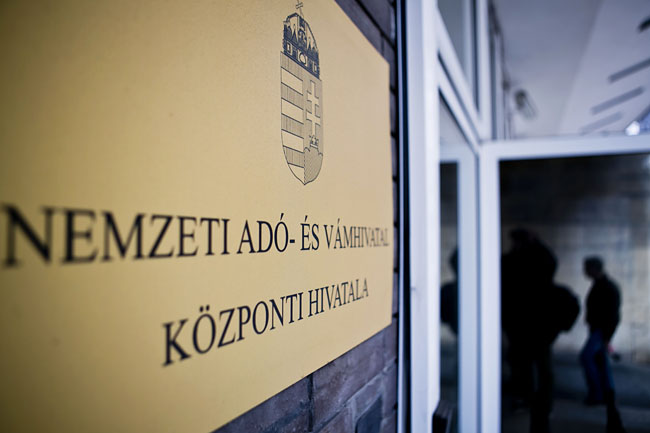The https://english.atlatszo.hu use cookies to track and profile customers such as action tags and pixel tracking on our website to assist our marketing. On our website we use technical, analytical, marketing and preference cookies. These are necessary for our site to work properly and to give us inforamation about how our site is used. See Cookies Policy
New systems for addressing cash register fraud more suspicious than ever
The central inspectorate of the Hungarian tax authority NAV is trying to gain exclusive control over the disqualification suspicious cash registers from commercial use. Documents obtained by Atlatszo.hu reveal that the new protocol would give enough time for any evidence of wrongdoing to be disposed of, especially given that the authorities are unable to respond immediately to accusations.
Linking all cash registers used in retail with the tax authority’s inspection system was one of the many unconventional measures introduced by Hungary’s current government, with the aim of pushing back the rampant shadow economy and also boosting central revenues in the process. The decision was announced in the autumn of 2012 and the whole system was intended to be operational within a few months. Unsurprisingly, this was completely unrealistic, though the system managed to launch in the summer of 2014. Yet, even the introductory phase was marred by suspicious events, not to mention payouts to government loyalists like Tibor Garancsi or Prime Minister Vitor Orbán’s son-in-law István Tiborcz.

The system is now finally operating, and will soon be expanded to cover more areas of the service industries. Though this in turn has led to the introduction of a new set of anomalies. The cash registers connected to NAV servers must undergo regular check-ups by licensed contractors, who are looking for any signs that the store-owners tried to tamper with the system to conceal revenues. Our sources say that with the system up and running it is almost impossible to fool the system, especially without leaving evidence.
Then, Marianna Dávida, head of NAV’s central inspectorate sent out a memo that in the future, only her department will have the jurisdiction to revoke the operating licenses of any suspect cash registers. The new protocol requires a written report from the auditor who has identified the problem, which will then be evaluated by the inspectorate, which will then give further directions, also in writing.
The memo don’t provide any sensible reasons behind the new process, but the consequences of the changes are potentially dramatic.
Our sources say that, with sending letters back and forth and reaching a decision on all matters, it could take two weeks between identifying the tampered device and revoking its license, giving violating store-owners plenty of time to cover their traces. The move also doesn’t make sense, since our sources confirm that the inspectorate doesn’t have the legal jurisdiction to become directly involved in auditing tasks. On top of that, given its actual profile, it doesn’t have the manpower and capacities to properly undertake the new tasks.
Effectively, the new system seriously weakens the integrity of the oversight, and gives a single department the means to handpick those that may or may not continue to operate.
Dávida and her close associates are by no means unfamiliar to Ataltszo.hu and its readers. Just recently, a former senior NAV official testified against Dávida in court saying she personally helped an American company make HUF 40 billion (€267 million) in tax arrears “disappear.”
Dávida is also reportedly one of the Hungarian tax officials that the United States has banned from entering claiming they are involved in corruption. The leader of NAV, Ildikó Vida, confirmed herself as one of the US banned officials, without naming any subordinates who might also be barred. The Hungarian government has declared the matter closed, without requiring Vida to clear herself of any of the charges, let alone address them in a satisfactory manner.
The US claims are all but confirmed by the numerous run-ins Atlatszo.hu has had with the tax authority. As we’ve found in the past, the same names consistently pop up in cases where tax fraud has been overlooked and our efforts to bring more light to these issues have been rewarded with an ongoing lawsuit filed by the tax authority.
Share:
Your support matters. Your donation helps us to uncover the truth.
- PayPal
- Bank transfer
- Patreon
- Benevity
Support our work with a PayPal donation to the Átlátszónet Foundation! Thank you.
Support our work by bank transfer to the account of the Átlátszónet Foundation. Please add in the comments: “Donation”
Beneficiary: Átlátszónet Alapítvány, bank name and address: Raiffeisen Bank, H-1054 Budapest, Akadémia utca 6.
EUR: IBAN HU36 1201 1265 0142 5189 0040 0002
USD: IBAN HU36 1201 1265 0142 5189 0050 0009
HUF: IBAN HU78 1201 1265 0142 5189 0030 0005
SWIFT: UBRTHUHB
Be a follower on Patreon
Support us on Benevity!

